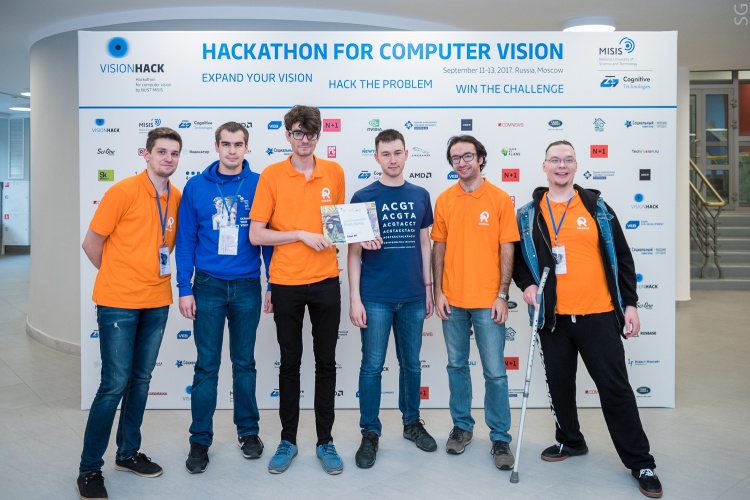Anastasia Kozar, a student of Innopolis University told why knowledge of the local language is not required to study in South Korea and how a Russian girl lives among Asian programmers.
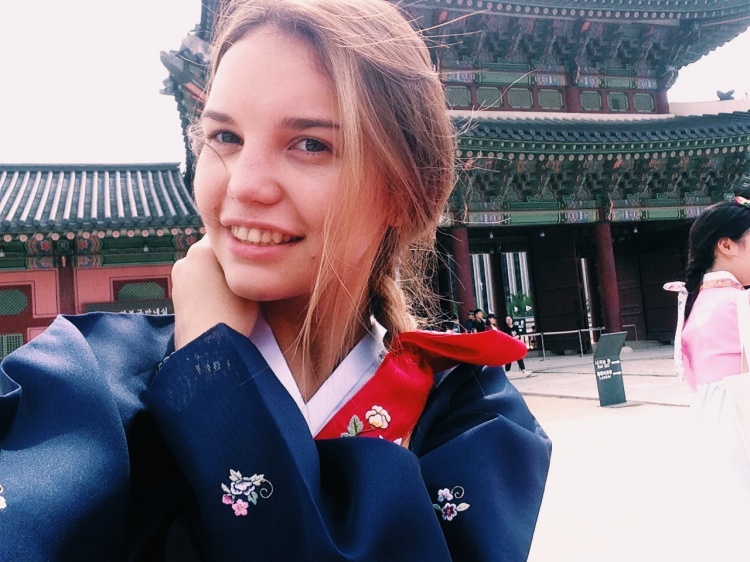
"Am I not on the list? How come? I could not register in the system containing information about all exchange students. Later on, I found out that it was a sort of a system failure. It is still hard to believe that this kind of errors can happen in such a well-developed country like South Korea. Anyway, I could not log in the system. No registration means no opportunity to book a room in a student hostel, and no accommodation in Korea which I hoped for. Documents were all ready, tickets purchased, and my suitcase was packed full of items for every occasion. Still, I was very worried at that moment.
My name is Anastasia. I am a 4th-year Bachelor's degree student of Innopolis University. At the beginning of this academic year I went to South Korea as a participant of the academic exchange program. It is my first semester at the Department of Computer Science and Engineering of Seoul National University (SNU) where I study Computer Science and Engineering.
When people ask me why I have decided to make such a long journey, I often answer that I am driven by curiosity, desire to gain knowledge and compare studies abroad with education in Russia. I have heard a lot about advantages of academic exchange: it is a chance to live in another country and meet students from various parts of the world, explore different cultures and traditions. So, I decided to try it at first hand.
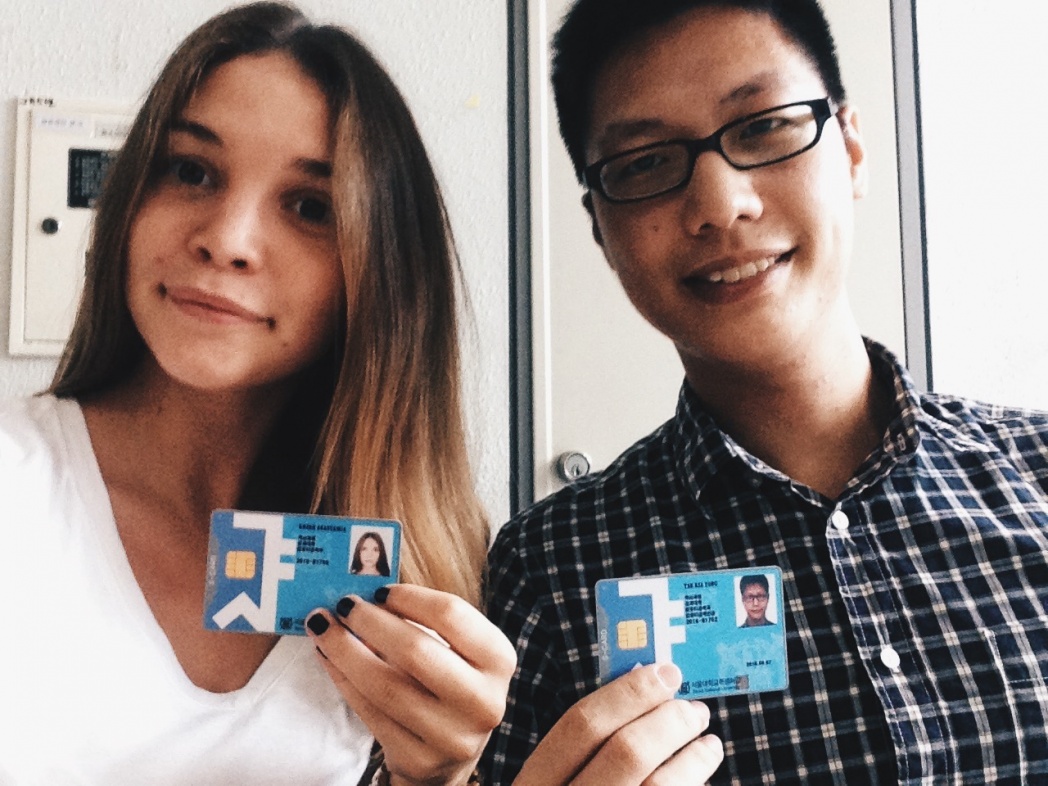
I have chosen Seoul National University for several reasons. First, SNU is among the top-30 universities of technology. Besides, it has been supporting academic exchange programs for many years. I have never been in Asia but heard that Asian programmers are highly skilled. This was a perfect opportunity to check my knowledge and skills.
Before taking a 6,000 km long journey, I studied information about Korea on the Internet. I had watched a dozen of videos about Korea and its capital, studied handbooks and travel tips. Before visiting a new country one should learn about its traditions, culture and lifestyle in order to adapt to the local environment. I was astonished by Seoul and a bit upset with the "dog issue". Those who are interested in Korea will eventually come across the fact that the Koreans eat dogs.
The capital of South Korea made a strong impression on me. The city is a unique combination of skyscrapers, royal palaces, underground and above-ground railway system and huge stores with endless raws of shelves.
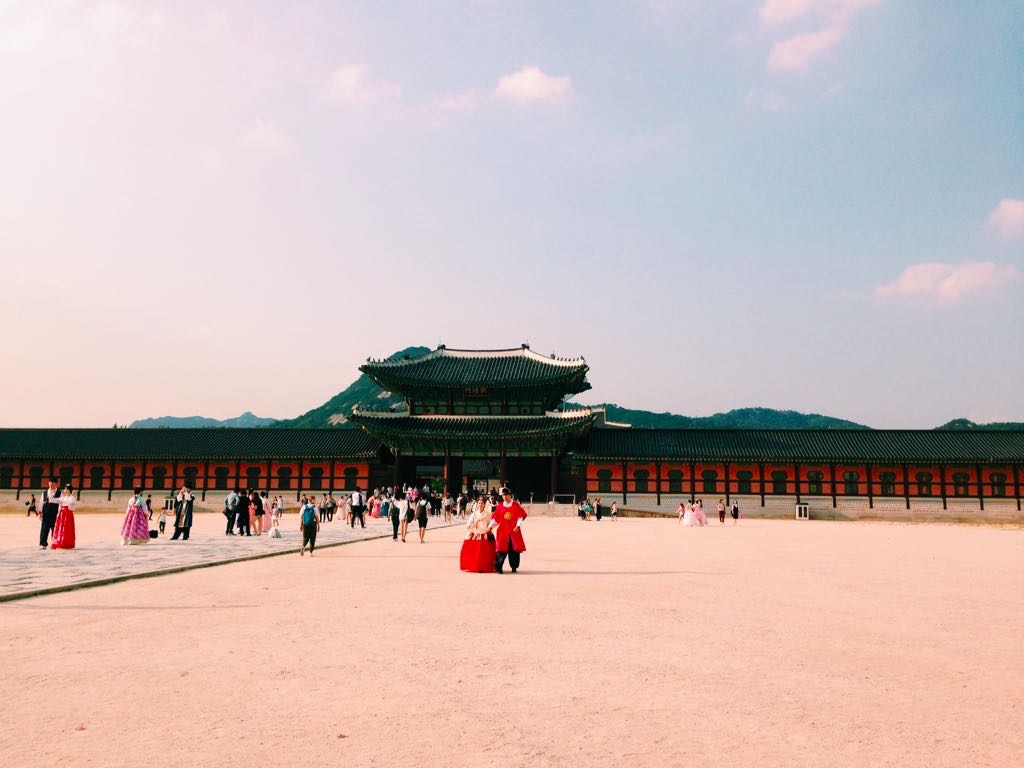
Upon arrival, my first task was to find accommodation - which was not a piece of cake by the way. On a couchsurfing website where local people offer a place to stay for travelers I got in touch with young people from Seoul. They were very kind and promised to help me with accommodation. The plan was as follows: I was going to spend a couple of days at my new friend's place and keep looking for other options on the Internet. Meanwhile, pictures of apartments and rooms posted online and offers of real estate agents including prices were far from reality. However, I was lucky: my friends helped me to find a suitable room and the owner even gave me a discount - for the beautiful smile as she said.

I know people who believe that academic exchange is fun. Indeed, it is exciting but not easy. In addition to two regular lectures and a home assignment once a week we get a laboratory task that takes as much effort as a month-long project. Besides, we have a three-hour practice and tests on assembler, machine code, hardware and operating systems. Luckily, at Innopolis University I had a course in Operating Systems by Professor Giancarlo Succi which helps me to deal with the last of these.
I am writing this message trying not to fall asleep as long as I wait for a lecture of Professor Berhard Egger. He teaches System Programming, the most difficult of the three courses that I have chosen for this semester. I knew that these courses will cost me sleepless nights if I want to get good grades.
The material is quite complicated but the Scandinavian Professor often illustrates it with interesting and curious facts. Sometimes he tells about unusual ways of killing your laptop. Now I know that programming skills can help you to build a "fork bomb", a program that continually replicates itself to consume CPU time and the system memory.
I get the highest scores for all tests and laboratory tasks but it seems that I spend more time on it than Korean students do. Exams are even harder. I do not know the results yet, but I worry about it. At the exam, I had a question on a topic that we did not discuss during the classes. The score for the correct answer is 25% of the overall grade. Local students finished the exam in 20 minutes while their exchange fellows were still scratching their heads. At that moment, I was working on the second question out of seven.
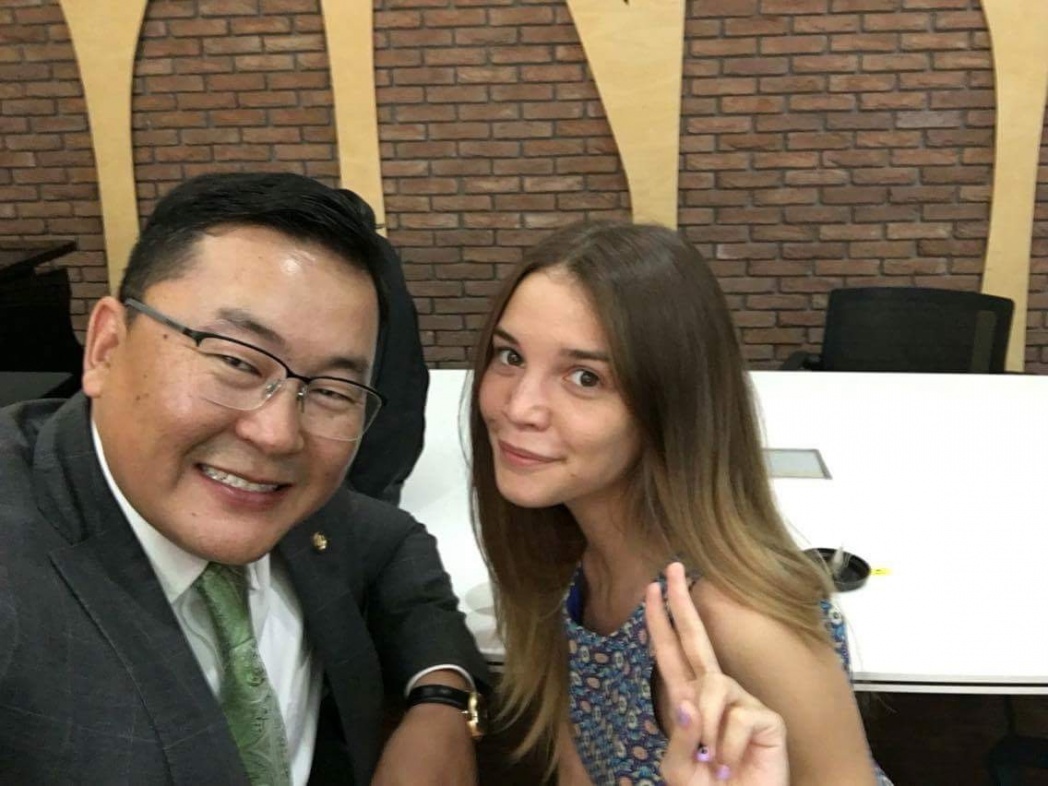
So far, it is hard to figure out the level of Korean programmers, but they are far more diligent than their foreign colleagues. Meanwhile, it is a Swiss and not an Asian professor who is in charge of the Department of Computer Science and Engineering.
According to the global rankings, Seoul National University is a leader among all other Korean universities. I know some people who had been trying to enter SNU for 5-7 years, but they never did because of tough selections.
Seoul National University is like Innopolis University - students cannot combine studies and job. I spend full 5 days with short breaks for sleep and meal on a single laboratory task as part of the System Programming course.
Speaking of food, at first it was hard to use chopsticks and spoons — the only table-ware available in the student cafeteria at SNU. But it was half the battle. The real challenge was the local food. It is so spicy that sometimes I try to hold my breath not to burn down the building. Fortunately, there is water on each table to save lives of novices like me.
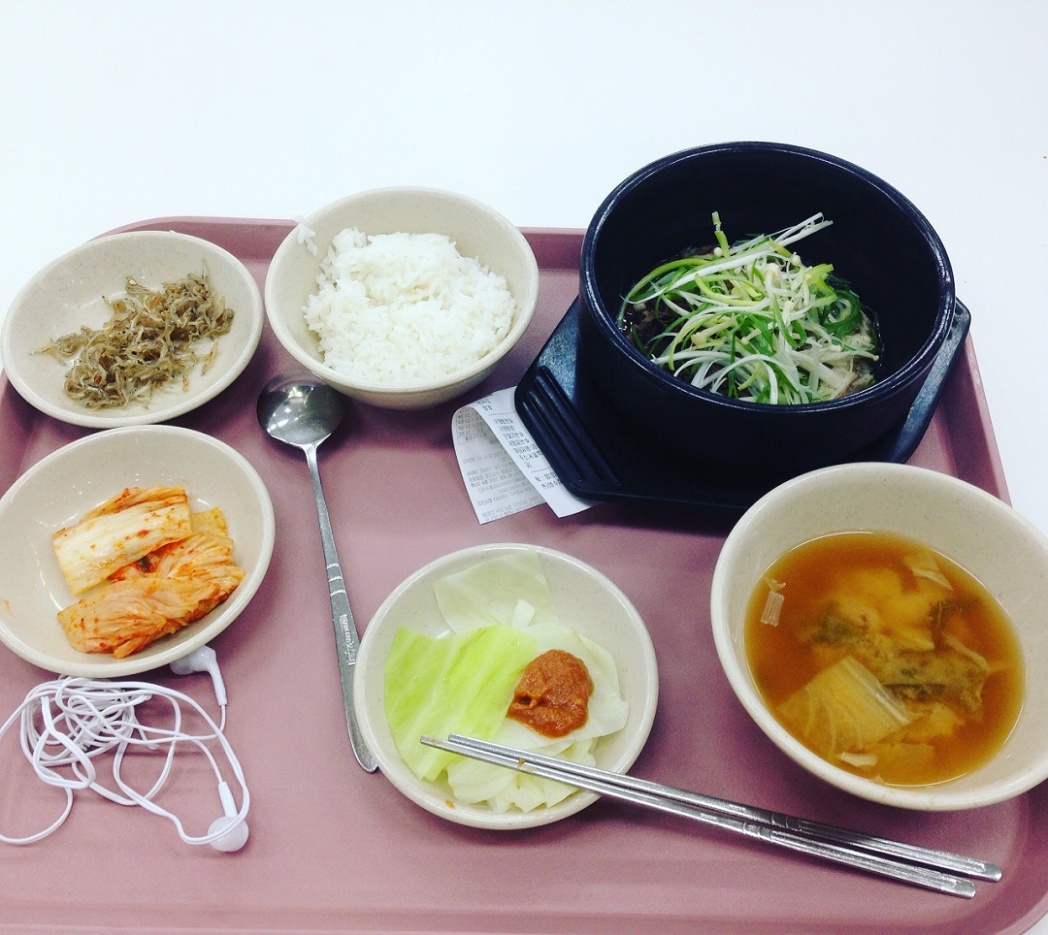
The Koreans are experts in cooking rice. They boil it, fry it with vegetables, make wine and sweets of it. Korean cuisine is full of surprises. Once I tried a snail soup served at the university cafeteria. Some time later in a local barbeque bar I tasted bugs in marinade sauce and a beverage made of sprouted shoots which looked like a vegetable soup.
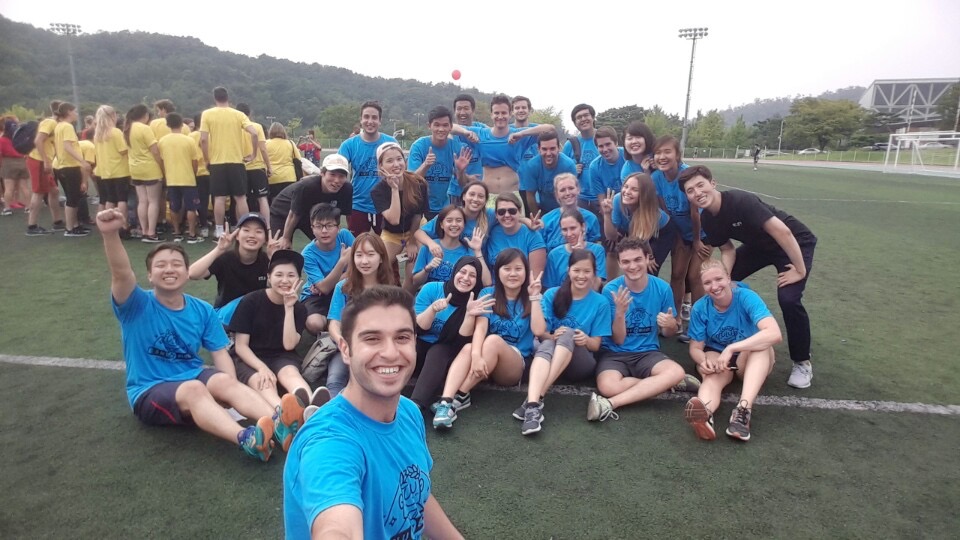
I usually have lunch with my friends who I met thanks to the SNU Buddy. This organization assigns a local student (Buddy) to a foreigner, thus helping the latter to adjust to a new environment. During my stay in Korea, SNU Buddy has organized an overnight trip to an island, rafting, paintball and weekly theme games. One day we got together to collect oysters and mussels on the ocean shore. We released some of them back into the ocean while the rest were used to cook a seafood soup.
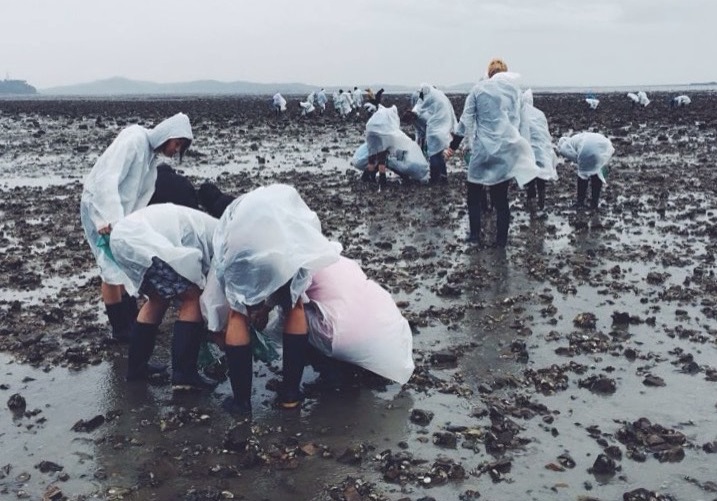
A trip to Gyeongbokgung, the main royal palace of the Joseon dynasty, was the most remarkable event for me. For people wearing hanbok, a traditional Korean clothing, the entrance is free of charge. So, we decided to rent it. The price of these wrap-around dresses is up to $5000. You can rent one for $30 but we had a group discount and got them for $15 a piece.
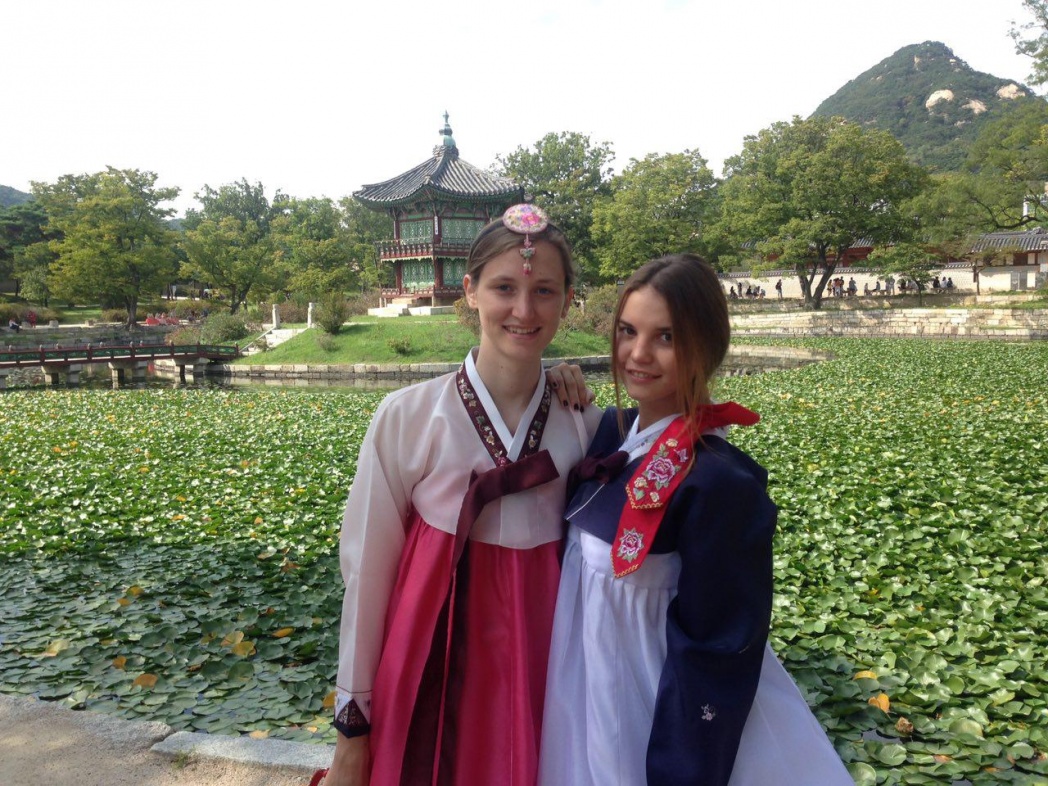
I often compare Russia and Korea. Indeed, everything here is more up-to-date, but I do not think that this country is far ahead of us. Meanwhile, I am glad that Wi-Fi covers the whole country. I am not going to tell you about talking toilets with heated seats and a bunch of buttons. I would rather say that daily appliances are more advanced here in terms of technology. The Korean underground is equipped with screens indicating location of trains. In summer, each carriage has a different level of conditioning which passengers can see on the carriage and choose the one with a comfortable temperature.
The university offers its own bonuses: each classroom has a small charging cabinet suitable for all kinds of mobile phones. Also, you can view the menu of the cafeteria online and book a seat in the library.
Speaking of the infrastructure, the university includes 50 buildings, and there is a free shuttle bus running across the campus. A student card (not to be confused with the bank card) confirms that you study at Seoul National University, and serves as a universal means of payment accepted in public transport, stores and restaurants.
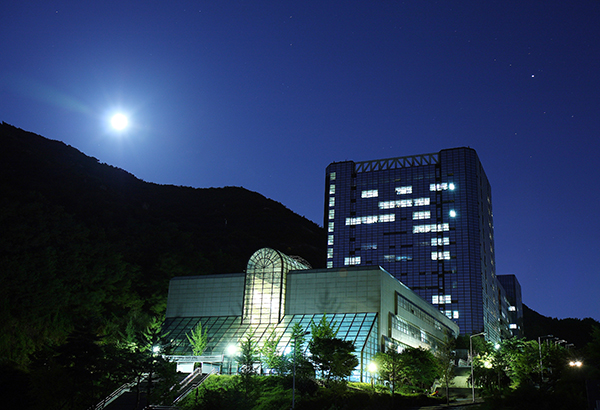
Daily routine in Seoul is full of surprises. For example, elderly people lead an active lifestyle and use modern gadgets as much as young people do. You can see them chatting on smartphones or taking photos with friends. In the evening Seoul parks offer dance events and gymnastics for elderly people where they enjoy the Latin American music.
I often communicate with students from France and Germany, but I cannot say that I have found any true friends here. Everyone is crazy about programming. In fact, nobody is interested in communication as it is.
In Korea, most of programmers are male like in Russia but I do not feel any special attitude conditioned by this. However, when I go out I know I am in the focus of attention. People take photos with me and make compliments. I was twice offered to become a model! It is funny but some even hang out of cars to look at me. No one stands aloof when I pass by - women, men, and children turn their heads. It is nice to feel special at every event or a party. This is exactly how club owners treat foreigners who come to their places. You attend parties for free, get your meals at the expense of the cafe and receive invitations to shows of Korean DJs.
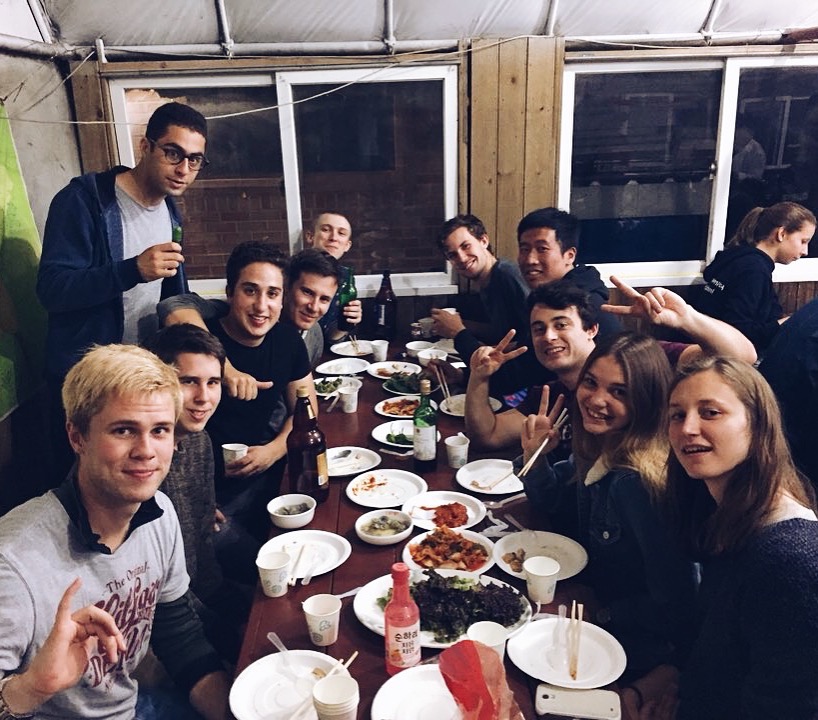
Sometimes I go to explore the city together with my friends. As I said, I mostly communicate with students from France and Germany, but I enjoy spending time with young people from other countries as well: Kia Young from Singapore who is a local student, Benkhun Djadamba from Mongolia and Katya from Moscow.
Walking across the city you cannot but notice that people here are stylish. It is interesting that girls always cover the upper part of their body. Sometimes it looks bizarre: they wear a long-sleeved jacket with a cutout dress or combine tiny shorts with a pair of black ones that look like underwear. Here is another interesting detail: most of the couples here are dressed alike. For instance, they choose colors that match, put on similar shoes or wear identical accessories.
The Koreans love computer games. Gamers are treated like celebrities, parents are proud of them and girls want to date virtual athletes. I attended two finals of the Starcraft II, but it is not very popular among the local people. The majority is fond of the League of Legends and the Overwatch. In Seoul computer clubs and cafes are at every corner: people enjoy eating and playing at once.
One of the most interesting details of Seoul is that it is a very crowded city. I compared it with St. Petersburg, and it turned out that the Korean metropolis is 2.5 times smaller than the Russian one, but the population of Seoul is 2 times bigger. Most of citizens speak English, so I do not have to learn Korean. Recently, I had a nice conversation with a bus driver. So, if you know English, you will feel comfortable here.
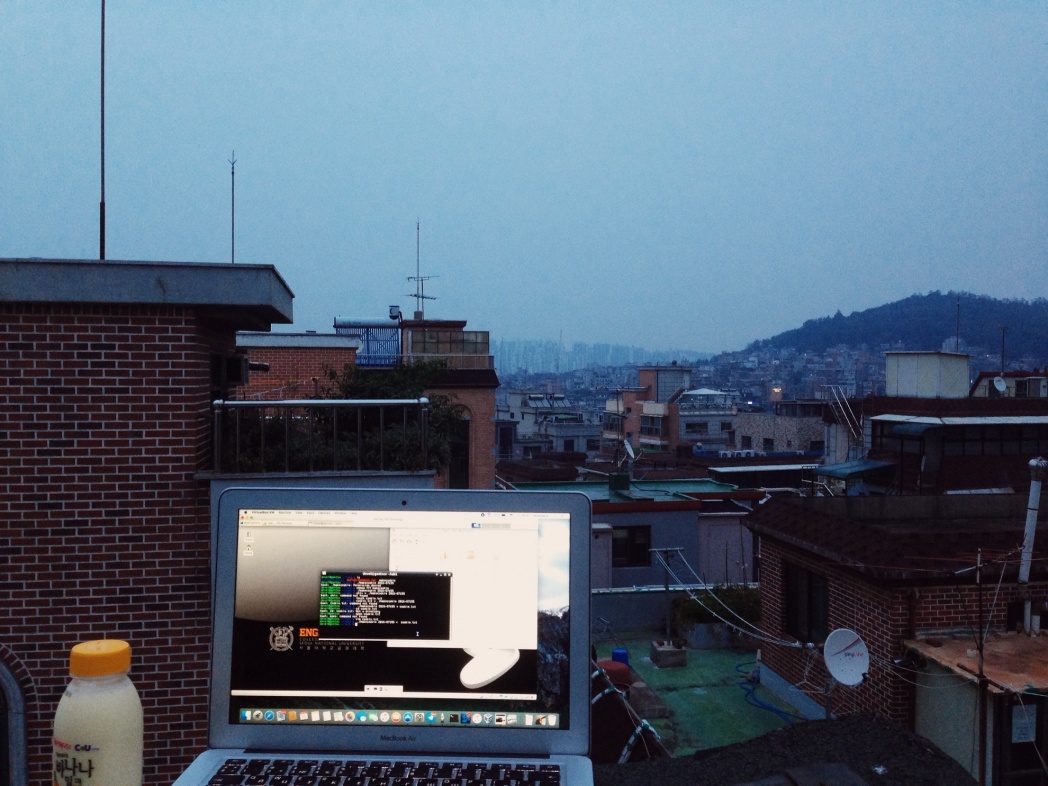
I miss home and Russian food and feel happy when I get a regular chicken for dinner. Still, there is no time to feel sad: I enjoy the warm weather outside, good people around me and my life packed full of exciting events!
